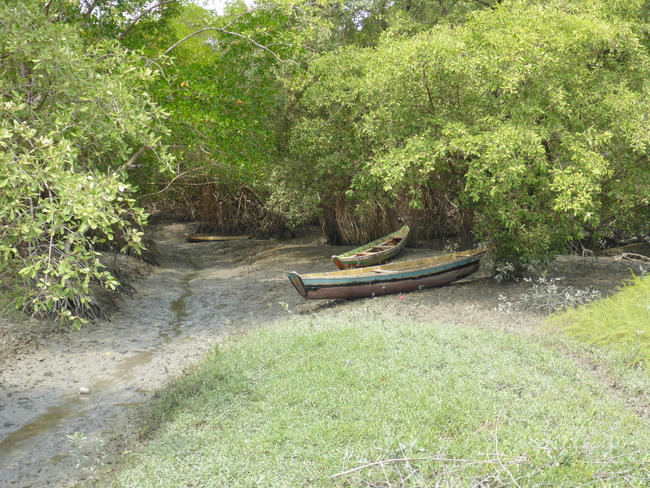Research aims
Mangroves sequester more carbon in stable anoxic sediments than most other marine or terrestrial ecosystems, contributing to the mitigation of CO2-driven climate change. This service, based on above and below ground biomass production and decomposition processes, strongly depends on the diversity and species composition of the sediment microbiota and fauna.
Based on a cross-continental comparison, this project will provide detailed information on microbe-driven sediment processes related to organic matter turnover and C-sequestration in mangrove areas, and how they are affected by the flora and fauna and their use by local populations. Understanding these relationships will help to develop management plans for future sustainable exploitation of mangroves for natural resources, and will serve to ensure efficient C-sequestration in tropical coastal sediments through providing a sound scientific basis for spatially planning protected areas and networks according to where relevant services are provided most efficiently.
Thus, DiSeMiNation aims at unravelling how the floral and faunal communities, environmental conditions and human resource use govern service-relevant microbial processes in mangrove eco-systems, and how related services spatially contribute to the benefit of users.
The innovative combination of cutting-edge technologies and methods in biology, chemistry and socio-ecological sciences into a “conservation-omics” framework, will provide a sound basis for knowledge-driven spatial conservation planning not solely in mangroves, but will also be easily transferrable to other coastal ecosystems.
Quarterly Newsletters:
DiSeMiNation Newsletter #1 2017
DiSeMiNation Newsletter #1 2018
DiSeMiNation Newsletter #2 2018
Stakeholder Workshop Reports:
Stakeholder Workshop Singapore #1 2017
Stakeholder Workshop South Africa #2 2018
Project Partners (Germany) |
International Project Partners | |
|---|---|---|
| Leibniz Centre for Tropical Marine Research (ZMT)
WG Mangrove Ecology (Prof. Dr. M. Zimmer, Dr. Véronique Helfer) WG Spatial Ecology and Interactions (Dr. H. Reuter) Office for Knowledge Exchange Leibniz AssociationProf. Dr Jörg Overmann, Dr Olga Jeske, Deutsche Sammlung von Mikroorgansimen und Zellkulturen (DSMZ), Braunschweig Dr. Karsten Grunewald, Leibniz-Institut für Ökologische Raumentwicklung (IÖR), Dresden Dr. Steffen Neumann, Chris Ulpinnis, Leibniz-Institut für Pflanzenbiochemie (IPB), Halle
|
Prof. Daniel Friess National University of Singapore (NUS), Singapore |





